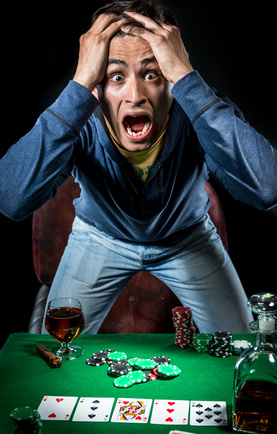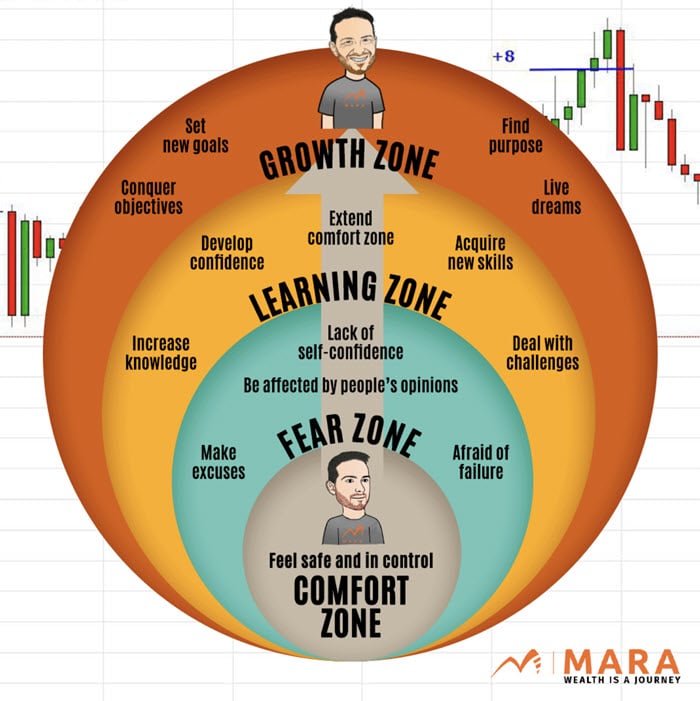3 min read
A Year with "The Trading Mindwheel": Transforming Trading Through Psychology
The following is a guest post from Michael Lamothe.
I'm Michael Lamothe, and today marks an extraordinary milestone: the first anniversary of "The...
4 min read
Rolf
Jun 17, 2015 8:00:00 PM

Cathy Hulbert is a professional ‘gambler’ who made a lot of money playing blackjack, slots and poker professionally over decades. I recently read the book ‘Gambling Wizards’ where she was featured, among other professional gambling legends. One passage struck me immediately because adopting a similar attitude could help traders perform much better and avoid unnecessary mistakes. Let me quote the passage from the book:
“Cathy: Before I go to play, I don’t engage in any other activity […] I don’t take phone calls. I don’t socialize. I don’t plan any social event afterward. I don’t want any time restrictions. I want my mind to stay as peaceful and restful as possible. I go to bed at exactly the same time every night and get up at exactly the same time every morning […] I don’t drink any alcohol the night before I’m going to play […] When I’m driving to the casino, I’m very aware of how irritated I am at other drivers […] The calmer I am, the better I know I’ll do […] If I’m driving like a maniac, if the light turns yellow and I’m rushing through, I’ll think, OK, you’re in a bad state today […]
Interviewer: Do you still play?
Cathy: I play lower. I make a mental note to watch what’s going on with myself […] I don’t want to tak a $5,000 loss because I’m in a terrible frame of mind.”
As a trader, you don’t have to be super smart, although you need to be educated to some degree, you don’t have to necessarily understand all macroeconomic factors, although it helps to form an opinion, and it’s not compulsory to be an avid accountant and being able to read through company balance sheets.
Although having a tested and sophisticated approach is very important, the difference between an amateur and a professional trader lies somewhere differently.The reasons for unnecessary and avoidable losses of amateur traders can often be attributed to the following 5 points:
If you are honest to yourself, you will know that you have probably engaged in at least a few of these 5 negative trading patterns. There is nothing to be ashamed of because most traders commit to the same actions and repeat their mistakes over and over again. If you objectively look back on your trading performance, most traders will see that the reason why they are not making the money they could be making is not because of the absence of a good trading strategy, but their repeated engagement in impulsive, emotionally caused trading decisions. It is safe to assume that most traders had a much better performance – some losing traders might even be break-even or winning traders – if they just had avoided the 5 previously mentioned mistakes.
Trading is a performance game and it’s not the trader with the most sophisticated trading strategy that will come out ahead, but the one who can control his emotions and attitude most effectively.
Self-awareness is a character trait that is important for being successful, not only as a trader, but in life in general. Self-awareness means that you are aware of yourself. This can include your strengths and weaknesses or your current state of mind and your emotional status.
Daily self-awareness and the ability to assess your current state of mind is important as a trader. Since being a trader means that you have to continually make decisions that can cost or make you money, and even result in major losses, making sure that you perform at your best level is important. However, most traders just see trading as a job where they HAVE TO sit in front of their desk from 9 to 5, regardless of how they feel.
Every morning, before you start up your trading platform, take some time to assess your current state of mind. The following points can serve as a guideline to evaluate yourself:
To assess your current situation, observe how you react and interact with people and situations around you. The quoted passage from the beginning gives a few helpful tips how your actual behavior and perception of the world around you signal your current state of mind.
If you feel not too well and you answer most of the questions above in a way that signals that you are not in the optimal state of mind, don’t trade! Take the time before lunch off, or even take the whole day off. You will always get another trade, but you can’t get back the money that you lost by making an unnecessary mistake. Another way of avoiding unnecessary mistakes when you don’t feel well is that you trade smaller positions. If you normally risk 2% per trade, go down to 1% or 0.5% until you are sure that you feel better. Trading is not a business where you get paid by the hour, but by your performance.
Further reading: In this article we asked 13 trading professionals how they deal with emotions in trading.

3 min read
The following is a guest post from Michael Lamothe.
I'm Michael Lamothe, and today marks an extraordinary milestone: the first anniversary of "The...

3 min read
It's easy to get discouraged by losses and question your every move. But what if there was a way to track your progress, learn from mistakes, and...

8 min read
Dive deep into the world of finance and high-stakes trading with this selection of movies and documentaries! From the exhilarating thrill of...